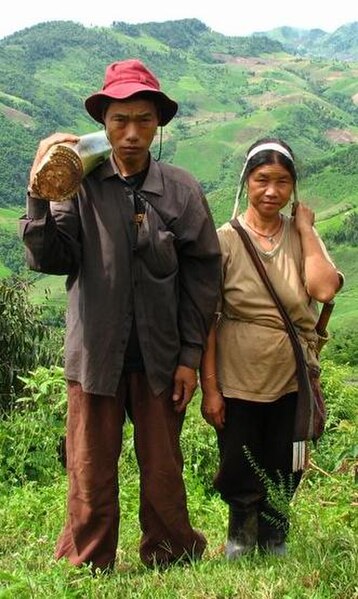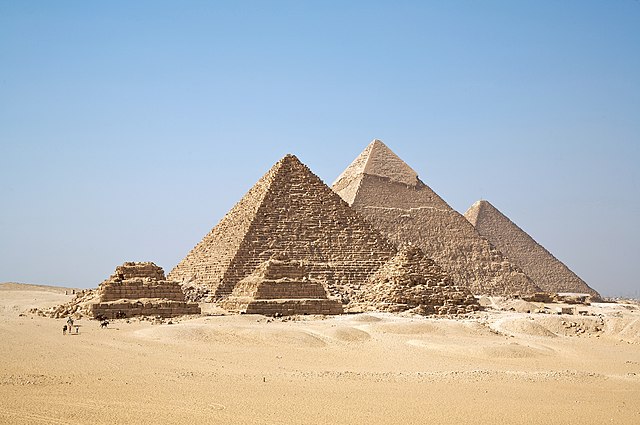A hunter-gatherer or forager is a human living in a community, or according to an ancestrally derived lifestyle, in which most or all food is obtained by foraging, that is, by gathering food from local naturally occurring sources, especially edible wild plants but also insects, fungi, honey, bird eggs, or anything safe to eat, and/or by hunting game. This is a common practice among most vertebrates that are omnivores. Hunter-gatherer societies stand in contrast to the more sedentary agricultural societies, which rely mainly on cultivating crops and raising domesticated animals for food production, although the boundaries between the two ways of living are not completely distinct.
Pygmy hunter-gatherers in the Congo Basin in August 2014
The Mal'ta-Buret' people in the Baikal region of Siberia lived in dwellings built of mammoth bones, similar to those found in Upper Paleolithic Western Eurasia.
A San man in the Kalahari Desert in South Africa. Many San still live as hunter-gatherers.
Bison hunt under the wolf-skin mask, George Catlin, c. 1832
Humans or modern humans are the most common and widespread species of primate, and the last surviving species of the genus Homo. They are great apes characterized by their hairlessness, bipedalism, and high intelligence. Humans have large brains, enabling more advanced cognitive skills that enable them to thrive and adapt in varied environments, develop highly complex tools, and form complex social structures and civilizations. Humans are highly social, with individual humans tending to belong to a multi-layered network of cooperating, distinct, or even competing social groups – from families and peer groups to corporations and political states. As such, social interactions between humans have established a wide variety of values, social norms, languages, and traditions, each of which bolsters human society. Humans are also highly curious: the desire to understand and influence phenomena has motivated humanity's development of science, technology, philosophy, mythology, religion, and other frameworks of knowledge; humans also study themselves through such domains as anthropology, social science, history, psychology, and medicine. As of May 2024, there are estimated to be more than 8 billion humans alive.

Human
Choropleth showing Population density (people per square kilometer) estimates by 30 arc-second grid in 2020
Reconstruction of Lucy, the first Australopithecus afarensis skeleton found
Great Pyramids of Giza, Egypt








